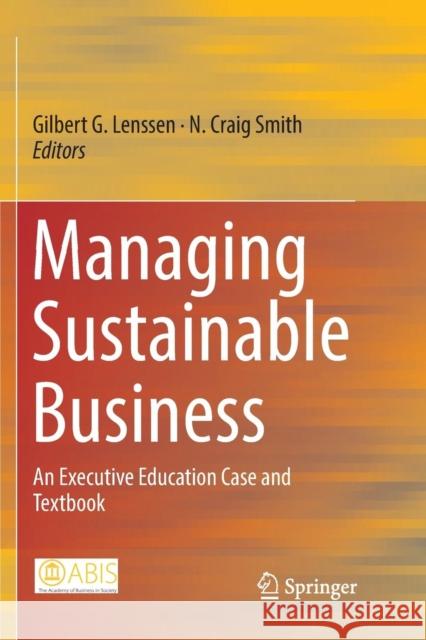Managing Sustainable Business: An Executive Education Case and Textbook » książka
topmenu
Managing Sustainable Business: An Executive Education Case and Textbook
ISBN-13: 9789402416343 / Angielski / Miękka / 2019 / 682 str.
Kategorie:
Kategorie BISAC:
Wydawca:
Springer
Język:
Angielski
ISBN-13:
9789402416343
Rok wydania:
2019
Wydanie:
Softcover Repri
Ilość stron:
682
Waga:
0.99 kg
Wymiary:
23.39 x 15.6 x 3.71
Oprawa:
Miękka
Wolumenów:
01
Dodatkowe informacje:
Wydanie ilustrowane











